Corey Shdaimah, CJAE Founder and Director
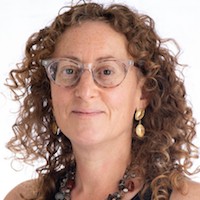 Corey Shdaimah is Daniel Thursz Distinguished Professor of Social Justice at the University of Maryland, School of Social Work and the Academic Coordinator of the MSW/JD and MSW/MPP Dual Degree Programs. Dr. Shdaimah’s research and writing focuses on how people respond, adapt to, and try to improve policies as they are implemented on the ground across a number of substantive areas. She has ongoing projects exploring dependency court reform and court-affiliated prostitution diversion program. Dr. Shdaimah relies on a variety of primarily qualitative methods to elicit the important insights that people have about improving the systems in which they work and interact. She is the author of many articles and several books, including The Compassionate Court: Support, Surveillance, and Survival in Two Court-Affiliated Prostitution Diversion Programs (under contract) with Shelly Wiechelt and Chrysanthi Leon (Temple University Press); Research Handbook on Law, Movements, and Social Change (forthcoming) with Steve Boutcher and Michael Yarbrough; Social Welfare Policy: A Dynamic Model (2020) with Shannon Lane and Elizabeth Palley; Challenging Perspectives on Street-Based Sex Work (2017) with Katie Hail-Jares and Chrysanthi Leon; In Our Hands: The Struggle for U.S. Child Care Policy (2014) with Elizabeth Palley; Change Research: Collaborative Research Methods for Social Workers and Advocates (2011) with Roland Stahl and Sanford Schram; and Negotiating Justice: Public Interest Lawyering, Low-Income Clients, and the Pursuit of Social Justice (2009).
Corey Shdaimah is Daniel Thursz Distinguished Professor of Social Justice at the University of Maryland, School of Social Work and the Academic Coordinator of the MSW/JD and MSW/MPP Dual Degree Programs. Dr. Shdaimah’s research and writing focuses on how people respond, adapt to, and try to improve policies as they are implemented on the ground across a number of substantive areas. She has ongoing projects exploring dependency court reform and court-affiliated prostitution diversion program. Dr. Shdaimah relies on a variety of primarily qualitative methods to elicit the important insights that people have about improving the systems in which they work and interact. She is the author of many articles and several books, including The Compassionate Court: Support, Surveillance, and Survival in Two Court-Affiliated Prostitution Diversion Programs (under contract) with Shelly Wiechelt and Chrysanthi Leon (Temple University Press); Research Handbook on Law, Movements, and Social Change (forthcoming) with Steve Boutcher and Michael Yarbrough; Social Welfare Policy: A Dynamic Model (2020) with Shannon Lane and Elizabeth Palley; Challenging Perspectives on Street-Based Sex Work (2017) with Katie Hail-Jares and Chrysanthi Leon; In Our Hands: The Struggle for U.S. Child Care Policy (2014) with Elizabeth Palley; Change Research: Collaborative Research Methods for Social Workers and Advocates (2011) with Roland Stahl and Sanford Schram; and Negotiating Justice: Public Interest Lawyering, Low-Income Clients, and the Pursuit of Social Justice (2009).

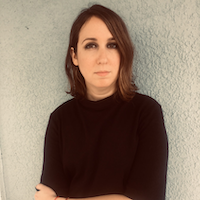 Linda-Jeanne M. Mack, MSW, LICSW is a PhD student at the School of Social Work, University of Maryland, Baltimore. Prior to becoming a doctoral student, Ms. Mack worked in the child welfare system for over a decade in Massachusetts. She was also a community mental health therapist specializing in therapy for individuals and families impacted by family separation and adoption. She continues to consult and lead trainings for mental health providers and child welfare workers. Ms. Mack has been an adjunct lecturer for several years. She has also been active in policy and legislative change at the state and federal levels. Now a full-time PhD student, she channels her passions for social work practice and policy advocacy into research.
Linda-Jeanne M. Mack, MSW, LICSW is a PhD student at the School of Social Work, University of Maryland, Baltimore. Prior to becoming a doctoral student, Ms. Mack worked in the child welfare system for over a decade in Massachusetts. She was also a community mental health therapist specializing in therapy for individuals and families impacted by family separation and adoption. She continues to consult and lead trainings for mental health providers and child welfare workers. Ms. Mack has been an adjunct lecturer for several years. She has also been active in policy and legislative change at the state and federal levels. Now a full-time PhD student, she channels her passions for social work practice and policy advocacy into research..jpg) Jenny Afkinich, PhD, MSW, is a Postdoctoral Scholar in Implementation Practice at the University of North Carolina School of Social Work. Jenny focuses on equity in implementation research and practice. Jenny also has an interest in decision-making in human services systems, particularly within the criminal legal contexts. Previously, Dr. Afkinich was Lead Research Analyst with the Parenting, Infants, and Early Childhood team of the Institute for Innovation and Implementation at the University of Maryland School of Social Work. She supports the data management, evaluation, and outcomes reporting for federally- and state-funded projects. These include B'More SUCCEEDS, which supports youth who may be pregnant or parenting and who are experiencing homelessness and substance use disorders, and B'More Reconnects, a multi-faceted project supporting the reunification of parents and children in Baltimore City by providing wraparound services for parents who are incarcerated and newly released from prison. Both projects include a mixed-methods evaluation component. Her dissertation was a mixed-methods study of an initiative by the South Carolina Department of Juvenile Justice in which social workers were placed in county offices to provide direct mental health services and consult on decision-making. Prior to her research training, Jenny practiced as a social worker serving children and families who experienced family violence, homelessness, and juvenile justice involvement.
Jenny Afkinich, PhD, MSW, is a Postdoctoral Scholar in Implementation Practice at the University of North Carolina School of Social Work. Jenny focuses on equity in implementation research and practice. Jenny also has an interest in decision-making in human services systems, particularly within the criminal legal contexts. Previously, Dr. Afkinich was Lead Research Analyst with the Parenting, Infants, and Early Childhood team of the Institute for Innovation and Implementation at the University of Maryland School of Social Work. She supports the data management, evaluation, and outcomes reporting for federally- and state-funded projects. These include B'More SUCCEEDS, which supports youth who may be pregnant or parenting and who are experiencing homelessness and substance use disorders, and B'More Reconnects, a multi-faceted project supporting the reunification of parents and children in Baltimore City by providing wraparound services for parents who are incarcerated and newly released from prison. Both projects include a mixed-methods evaluation component. Her dissertation was a mixed-methods study of an initiative by the South Carolina Department of Juvenile Justice in which social workers were placed in county offices to provide direct mental health services and consult on decision-making. Prior to her research training, Jenny practiced as a social worker serving children and families who experienced family violence, homelessness, and juvenile justice involvement..jpg) Rebecca Bowman-Rivas is a clinical and forensic social worker who has run the Law & Social Work Services Program at the University of Maryland Baltimore’s Carey School of Law for the past 18 years. The program provides social work services and support for the Law School’s Clinical Program, providing law and social work students the opportunity to collaborate and provide holistic services to their clients. Areas of practice include criminal justice, immigration, low-income taxpayers, gender violence, and healthcare and HIV/AIDS. The program provided support and case management for more than 100 individuals released under Unger v. Maryland (2012), after serving decades in prison. She received the University System of Maryland (USM) Board of Regents’ Staff Award for Extraordinary Public Service to the University or Greater Community in 2017. Ms. Bowman-Rivas has been in private practice for more than a decade through Bowman-Rivas Consulting, LLC, providing mitigation and sentencing advocacy in capital cases and other felonies, juvenile LWOP and transfer of jurisdiction cases. She is a graduate of Johns Hopkins University and the University of Maryland School of Social Work.
Rebecca Bowman-Rivas is a clinical and forensic social worker who has run the Law & Social Work Services Program at the University of Maryland Baltimore’s Carey School of Law for the past 18 years. The program provides social work services and support for the Law School’s Clinical Program, providing law and social work students the opportunity to collaborate and provide holistic services to their clients. Areas of practice include criminal justice, immigration, low-income taxpayers, gender violence, and healthcare and HIV/AIDS. The program provided support and case management for more than 100 individuals released under Unger v. Maryland (2012), after serving decades in prison. She received the University System of Maryland (USM) Board of Regents’ Staff Award for Extraordinary Public Service to the University or Greater Community in 2017. Ms. Bowman-Rivas has been in private practice for more than a decade through Bowman-Rivas Consulting, LLC, providing mitigation and sentencing advocacy in capital cases and other felonies, juvenile LWOP and transfer of jurisdiction cases. She is a graduate of Johns Hopkins University and the University of Maryland School of Social Work.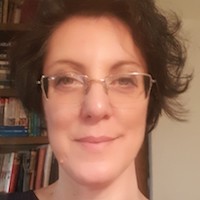
-(1).png)
 Natalie is a Lead Research Analyst in the Research and Evaluation Unit at the Institute for Innovation and Implementation and a PhD student at the Johns Hopkins Bloomberg School of Public Health. She works on several juvenile justice-focused projects. Natalie received her MPH from Johns Hopkins Bloomberg School of Public Health and previously worked at Baltimore City Health Department as an epidemiologist. She has authored and co-authored several journal articles which have described the intersections of criminal justice and health among key populations affected by HIV.
Natalie is a Lead Research Analyst in the Research and Evaluation Unit at the Institute for Innovation and Implementation and a PhD student at the Johns Hopkins Bloomberg School of Public Health. She works on several juvenile justice-focused projects. Natalie received her MPH from Johns Hopkins Bloomberg School of Public Health and previously worked at Baltimore City Health Department as an epidemiologist. She has authored and co-authored several journal articles which have described the intersections of criminal justice and health among key populations affected by HIV.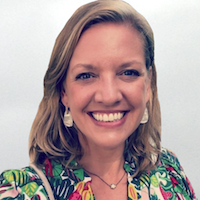
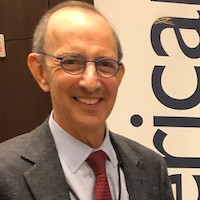 Dr. Geoffrey Greif is a Professor at the University of Maryland School of Social Work where he has worked since 1984. He was Associate Dean from 1996 to 2007. He received his MSW from the University of Pennsylvania and his PhD from the Columbia University School of Social Work. He is the author of more than 150 journal articles and book chapters and fifteen books including four that are co-edited. These include: When Parents Kidnap (co-authored with Dr. Rebecca Hegar); Single Fathers; Beating the Odds: Raising academically successful African American males (written with Drs. Freeman Hrabowski and Ken Maton); Overcoming the Odds: Raising academically successful African American young women (written with Hrabowski, Maton, and Monica Greene); and Group work with populations at risk (co-edited with Dr. Carolyn Knight).
Dr. Geoffrey Greif is a Professor at the University of Maryland School of Social Work where he has worked since 1984. He was Associate Dean from 1996 to 2007. He received his MSW from the University of Pennsylvania and his PhD from the Columbia University School of Social Work. He is the author of more than 150 journal articles and book chapters and fifteen books including four that are co-edited. These include: When Parents Kidnap (co-authored with Dr. Rebecca Hegar); Single Fathers; Beating the Odds: Raising academically successful African American males (written with Drs. Freeman Hrabowski and Ken Maton); Overcoming the Odds: Raising academically successful African American young women (written with Hrabowski, Maton, and Monica Greene); and Group work with populations at risk (co-edited with Dr. Carolyn Knight)..jpg) Caroline Harmon-Darrow, PhD, MSW, LMSW, is an Assistant Professor at Rutgers School of Social Work. Previously, Dr. Harmon-Darrow worked as the Senior Community Program Specialist in the Prevention of Adolescent Risks Initiative at the University of Maryland, Baltimore School of Social Work, where she collaborates on several projects related to the Maryland Human Trafficking Initiative. She coordinates training for child welfare workers, pediatricians and other medical providers, law enforcement professionals, and members of the community about preventing child trafficking, and engaging with survivors. Her research and scholarship center on reducing violence, victimization, and incarceration, including through a graduate research assistantship with the National Institute of Justice, and serving as co-chair of the Grand Challenges of Social Work Smart Decarceration Committee’s Policing Work Group. A community mediator of 24 years, she trains, mentors, and evaluates other mediators, and has held leadership positions in local, state and national conflict resolution organizations, following work with survivors of intimate partner violence.
Caroline Harmon-Darrow, PhD, MSW, LMSW, is an Assistant Professor at Rutgers School of Social Work. Previously, Dr. Harmon-Darrow worked as the Senior Community Program Specialist in the Prevention of Adolescent Risks Initiative at the University of Maryland, Baltimore School of Social Work, where she collaborates on several projects related to the Maryland Human Trafficking Initiative. She coordinates training for child welfare workers, pediatricians and other medical providers, law enforcement professionals, and members of the community about preventing child trafficking, and engaging with survivors. Her research and scholarship center on reducing violence, victimization, and incarceration, including through a graduate research assistantship with the National Institute of Justice, and serving as co-chair of the Grand Challenges of Social Work Smart Decarceration Committee’s Policing Work Group. A community mediator of 24 years, she trains, mentors, and evaluates other mediators, and has held leadership positions in local, state and national conflict resolution organizations, following work with survivors of intimate partner violence. Ashley Jackson is a PhD Candidate at the Brown School of Social Work at Washington University in St. Louis. Her research focuses on the impact of police contact on youth and families. Specifically, her dissertation research examines the factors influencing how youth engage in discussions about preparation for police interactions. Prior to her doctoral studies, Ashley supported communities addressing public safety issues, conducted mixed-methods research on youth experiences with the juvenile legal system, and examined how police contact impacts youth and families. She has an MSW from the University of Chicago, Crown Family School of Social Work, Policy, and Practice (formerly the School of Social Service Administration (SSA)) and a BS in Administration of Justice from George Mason University. Ashley is collaborating with CJAE on the qualitative police-initiated diversion study.
Ashley Jackson is a PhD Candidate at the Brown School of Social Work at Washington University in St. Louis. Her research focuses on the impact of police contact on youth and families. Specifically, her dissertation research examines the factors influencing how youth engage in discussions about preparation for police interactions. Prior to her doctoral studies, Ashley supported communities addressing public safety issues, conducted mixed-methods research on youth experiences with the juvenile legal system, and examined how police contact impacts youth and families. She has an MSW from the University of Chicago, Crown Family School of Social Work, Policy, and Practice (formerly the School of Social Service Administration (SSA)) and a BS in Administration of Justice from George Mason University. Ashley is collaborating with CJAE on the qualitative police-initiated diversion study. 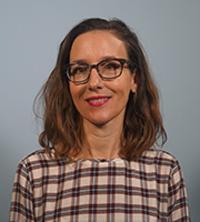
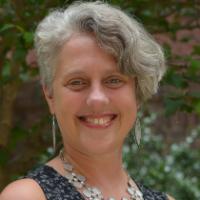 Dr. Kyla Liggett-Creel (Dr. K) is a Clinical Associate Professor at the School of Social Work, University of Maryland. Dr. Liggett-Creel and the Director of The Collaborative: A Healing-Centered Community. She is the chair of the Mayor’s Youth Trauma Workgroup, facilitator for the Mayor’s Cabinet for Boys and Young Men of Color, and staff person for the Baltimore City Trauma Taskforce Youth Workgroup. Dr. Liggett-Creel is also the founder and Director of the Healing Youth Alliance. She is working on several initiatives partnering with community-based minority run non-profits to prevent, and heal from, community violence. Dr. K’s area of specialization is youth leadership, healing-centered engagement, trauma, and equity.
Dr. Kyla Liggett-Creel (Dr. K) is a Clinical Associate Professor at the School of Social Work, University of Maryland. Dr. Liggett-Creel and the Director of The Collaborative: A Healing-Centered Community. She is the chair of the Mayor’s Youth Trauma Workgroup, facilitator for the Mayor’s Cabinet for Boys and Young Men of Color, and staff person for the Baltimore City Trauma Taskforce Youth Workgroup. Dr. Liggett-Creel is also the founder and Director of the Healing Youth Alliance. She is working on several initiatives partnering with community-based minority run non-profits to prevent, and heal from, community violence. Dr. K’s area of specialization is youth leadership, healing-centered engagement, trauma, and equity. Judith Park graduated from UMB in 2021 with a Master's degree in social work and public health. She is currently working as a research coordinator with the UMB SSW to study the impact of drug criminalization on communities and explore approaches to decriminalization in Maryland.
Judith Park graduated from UMB in 2021 with a Master's degree in social work and public health. She is currently working as a research coordinator with the UMB SSW to study the impact of drug criminalization on communities and explore approaches to decriminalization in Maryland. 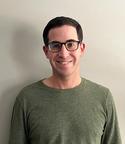 Michael Schlossman is a Lead Research Analyst at the University of Maryland Baltimore’s Institute for Innovation and Implementation. Dr. Schlossman’s research focuses on the implementation and impact of community alternatives to incarceration and evidence-based practices in juvenile justice. He previously worked as a Research Analyst at the Pennsylvania Juvenile Court Judges’ Commission, where he analyzed trends and patterns in court decision-making and the implementation of the state’s Juvenile Justice System Enhancement Strategy. He received his Ph.D. in Sociology from Princeton University and an M.Phil from the Institute of Criminology at the University of Cambridge.
Michael Schlossman is a Lead Research Analyst at the University of Maryland Baltimore’s Institute for Innovation and Implementation. Dr. Schlossman’s research focuses on the implementation and impact of community alternatives to incarceration and evidence-based practices in juvenile justice. He previously worked as a Research Analyst at the Pennsylvania Juvenile Court Judges’ Commission, where he analyzed trends and patterns in court decision-making and the implementation of the state’s Juvenile Justice System Enhancement Strategy. He received his Ph.D. in Sociology from Princeton University and an M.Phil from the Institute of Criminology at the University of Cambridge.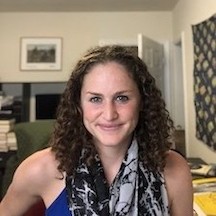 Ruth Shefner is a doctoral student in Sociomedical Sciences at the Mailman School of Public Health, on the sociology track. She is focused broadly on criminal legal systems, with interests in policing, court based interventions, and collateral consequences of mass incarceration. Prior to coming to Columbia, Ruth was the Director of the Goldring Reentry Initiative, a program housed at the University of Pennsylvania’s School of Social Policy and Practice that supports individuals pre- and post-release from Philadelphia’s county jail system while training Master of Social Work students to work in the field of criminal justice. In this role, Ruth provided direct therapeutic case management services, as well as oversaw all program operations, including client selection, collaboration of community and legal partners, clinical supervision of social work students, and program evaluation. Ruth is collaborating with Nancy Franke on the mandated sex offender treatment study.
Ruth Shefner is a doctoral student in Sociomedical Sciences at the Mailman School of Public Health, on the sociology track. She is focused broadly on criminal legal systems, with interests in policing, court based interventions, and collateral consequences of mass incarceration. Prior to coming to Columbia, Ruth was the Director of the Goldring Reentry Initiative, a program housed at the University of Pennsylvania’s School of Social Policy and Practice that supports individuals pre- and post-release from Philadelphia’s county jail system while training Master of Social Work students to work in the field of criminal justice. In this role, Ruth provided direct therapeutic case management services, as well as oversaw all program operations, including client selection, collaboration of community and legal partners, clinical supervision of social work students, and program evaluation. Ruth is collaborating with Nancy Franke on the mandated sex offender treatment study. 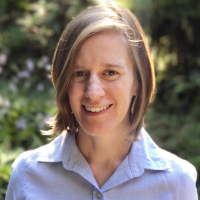 Alexandra researches interventions for individuals with substance use problems and associated challenges such as criminal justice involvement and HIV risk. She is interested in complementary health approaches to improve stress coping as a pathway to reduced substance use. For example, she designed and implemented an RCT testing the effect of a yoga intervention on stress, substance use and HIV outcomes for individuals in reentry from prison or jail. Alexandra also researches interventions that recognize the chronic nature of substance use disorders, particularly continuing care.
Alexandra researches interventions for individuals with substance use problems and associated challenges such as criminal justice involvement and HIV risk. She is interested in complementary health approaches to improve stress coping as a pathway to reduced substance use. For example, she designed and implemented an RCT testing the effect of a yoga intervention on stress, substance use and HIV outcomes for individuals in reentry from prison or jail. Alexandra also researches interventions that recognize the chronic nature of substance use disorders, particularly continuing care.